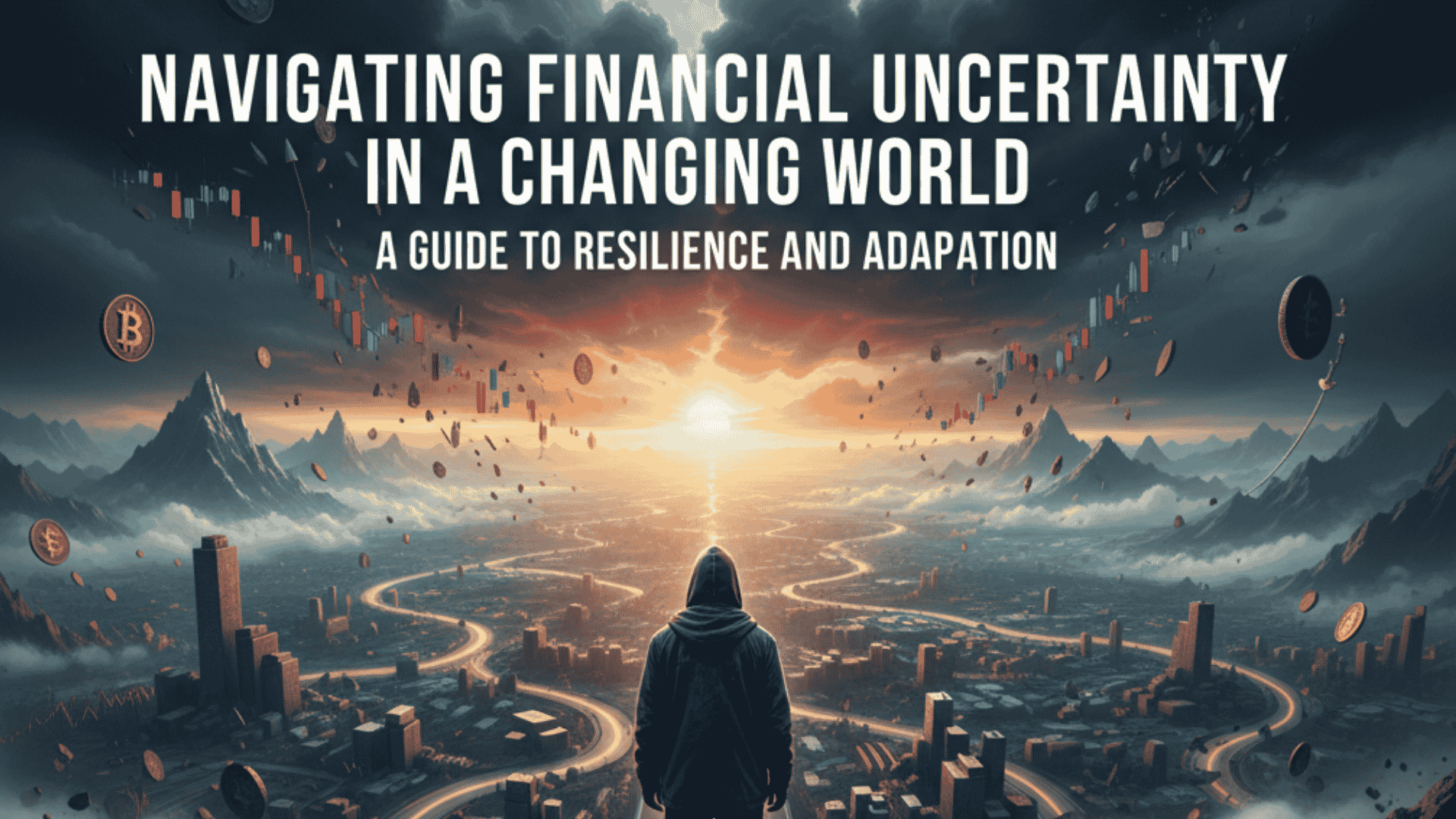The global economy is a complex system that connects nations through trade, investment, technology, and finance. In recent years, the world has faced unprecedented economic disruptions—from the COVID-19 pandemic to geopolitical conflicts, supply chain breakdowns, and rapid technological transformation. Among the many challenges shaping today’s economy, inflation has become one of the most significant concerns for policymakers, businesses, and individuals alike. Understanding the causes, consequences, and strategies to manage inflation is critical for navigating financial uncertainty in this rapidly evolving world.
Understanding the Global Economy
The global economy refers to the interconnected network of production, trade, and financial flows among countries. Key drivers include:
- International Trade – Movement of goods and services across borders.
- Foreign Investment – Capital flow from one country to another for development and growth.
- Global Supply Chains – Complex production systems that span multiple countries.
- Financial Systems – International banking, stock markets, and currencies.
- Technology & Innovation – Digitalization and automation shaping productivity and competitiveness.
The global economy thrives on interdependence. When one part of the system falters—such as supply chain disruptions in Asia or energy crises in Europe—the ripple effects are felt worldwide.
What is Inflation?
Inflation is the sustained increase in the general price level of goods and services in an economy over time. It reduces the purchasing power of money, meaning you can buy less with the same amount.
Economists typically measure inflation through indices like:
- Consumer Price Index (CPI) – Tracks changes in the prices of consumer goods and services.
- Producer Price Index (PPI) – Measures price changes from the perspective of producers.
A moderate level of inflation (around 2–3% annually) is generally considered healthy, as it encourages spending and investment. However, when inflation spikes, it can destabilize economies.
Causes of Inflation
Several factors can drive inflation:
- Demand-Pull Inflation – When demand for goods and services outpaces supply.
- Cost-Push Inflation – Rising production costs (e.g., energy, wages) push prices higher.
- Monetary Factors – Excess money supply in circulation reduces currency value.
- Global Supply Chain Issues – Shortages in raw materials, shipping delays, or trade disruptions.
- Geopolitical Events – Wars, sanctions, and trade restrictions disrupt global markets.
Recent Trends in Global Inflation
In the past few years, inflation has surged worldwide due to multiple overlapping crises:
- COVID-19 Pandemic – Lockdowns disrupted supply chains, causing shortages.
- Geopolitical Conflicts – Russia-Ukraine war raised global energy and food prices.
- Energy Transition – Shifts toward renewable energy created temporary supply imbalances.
- Labor Market Shifts – Worker shortages in some regions drove wages up.
Countries such as the U.S., U.K., and India have all seen inflation rates rise significantly, affecting millions of households.
Consequences of Inflation
The impacts of inflation ripple across economies and societies:
- Reduced Purchasing Power – Everyday essentials like food, fuel, and housing become more expensive.
- Increased Interest Rates – Central banks raise rates to control inflation, making loans and mortgages costlier.
- Investment Uncertainty – Volatility discourages long-term investment.
- Income Inequality – Inflation disproportionately affects lower-income households.
- Global Trade Shifts – Currency fluctuations affect competitiveness in international trade.
How Countries Respond to Inflation
Governments and central banks adopt various measures to curb inflation:
- Monetary Policy – Central banks (like the Federal Reserve, ECB, or RBI) raise interest rates to reduce money supply.
- Fiscal Policy – Governments cut spending or adjust taxes to reduce demand.
- Supply-Side Policies – Investing in infrastructure and technology to boost productivity and reduce bottlenecks.
- Price Controls & Subsidies – Temporary relief measures, though often unsustainable long-term.
The Role of Global Cooperation
Because the global economy is interconnected, tackling inflation often requires international coordination. Organizations like the International Monetary Fund (IMF), World Bank, and G20 play vital roles in stabilizing economies, offering financial assistance, and promoting fair trade practices.
Inflation and Individuals: Coping Strategies
Inflation is not just a macroeconomic issue—it affects daily life. Individuals can adopt strategies to protect themselves:
- Budgeting – Track expenses and prioritize essentials.
- Smart Investing – Consider assets that typically outpace inflation, such as stocks, real estate, or inflation-indexed bonds.
- Skill Development – Upskilling to secure higher-paying jobs.
- Debt Management – Pay off high-interest debt quickly as borrowing becomes more expensive.
Future Outlook: Global Economy in Transition
Looking ahead, the global economy faces both challenges and opportunities:
- Technological Shifts – AI, automation, and digital currencies are transforming productivity and finance.
- Energy Transition – Moving toward renewable energy will reshape global trade and investment flows.
- Geopolitical Realignments – Nations are reassessing trade partnerships and supply chains.
- Climate Change – Environmental risks pose financial challenges but also open opportunities for green investment.
Conclusion
Inflation is a natural part of economic cycles, but when it accelerates, it can destabilize societies and businesses. The global economy’s complexity means that no single country can fully insulate itself from these shocks. A combination of sound economic policy, global cooperation, and individual resilience will be essential to navigate these uncertain times. Ultimately, by adapting to change and embracing innovation, humanity can build a more stable and inclusive global economy.
